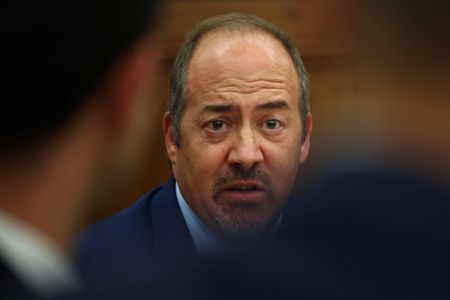ZURICH (Reuters) -Switzerland’s economy will grow by 2.8% this year, the government forecast on Monday, lowering its previous outlook due to the Ukraine conflict and higher inflation.
The government, which previously forecast the economy to grow by 3% in 2022, kept its 2023 forecast for growth of 2%.[S8N2NQ00W].
The war in Ukraine “poses major risks for the global economy”, the State Secretariat for Economic Affairs (SECO) said, even if the situation did not escalate further.
SECO raised its 2022 inflation forecast for Switzerland to 1.9% from the 1.1.% forecast it gave in December, and said it expected higher prices to hit consumer spending.
Inflation is then expected to decline to 0.7% in 2023.
The direct impact of the Ukraine conflict on Switzerland is likely to be limited, given the relatively low level of economic ties with Russia and Ukraine, SECO said.
“Nonetheless, significant indirect effects are to be expected. World prices of key exports from Russia and Ukraine – energy resources as well as certain food staples and industrial metals – have soared.
Global inflationary pressures will therefore remain high for now.”
The recent appreciation of the Swiss franc, as investors sought safe havens amid the conflict, is helping to limit inflation, but domestic prices are still expected to rise.
Swiss inflation hit 2.2% in February, its highest level since 2008, while the Swiss National Bank this month made a rare verbal intervention to curb the franc’s appreciation after the currency briefly pushed above parity versus the euro.
Increased uncertainty is also weighing on investment while global supply chain issues are increasing, SECO added.
(Reporting by John Revill; Editing by Michael Shields)









